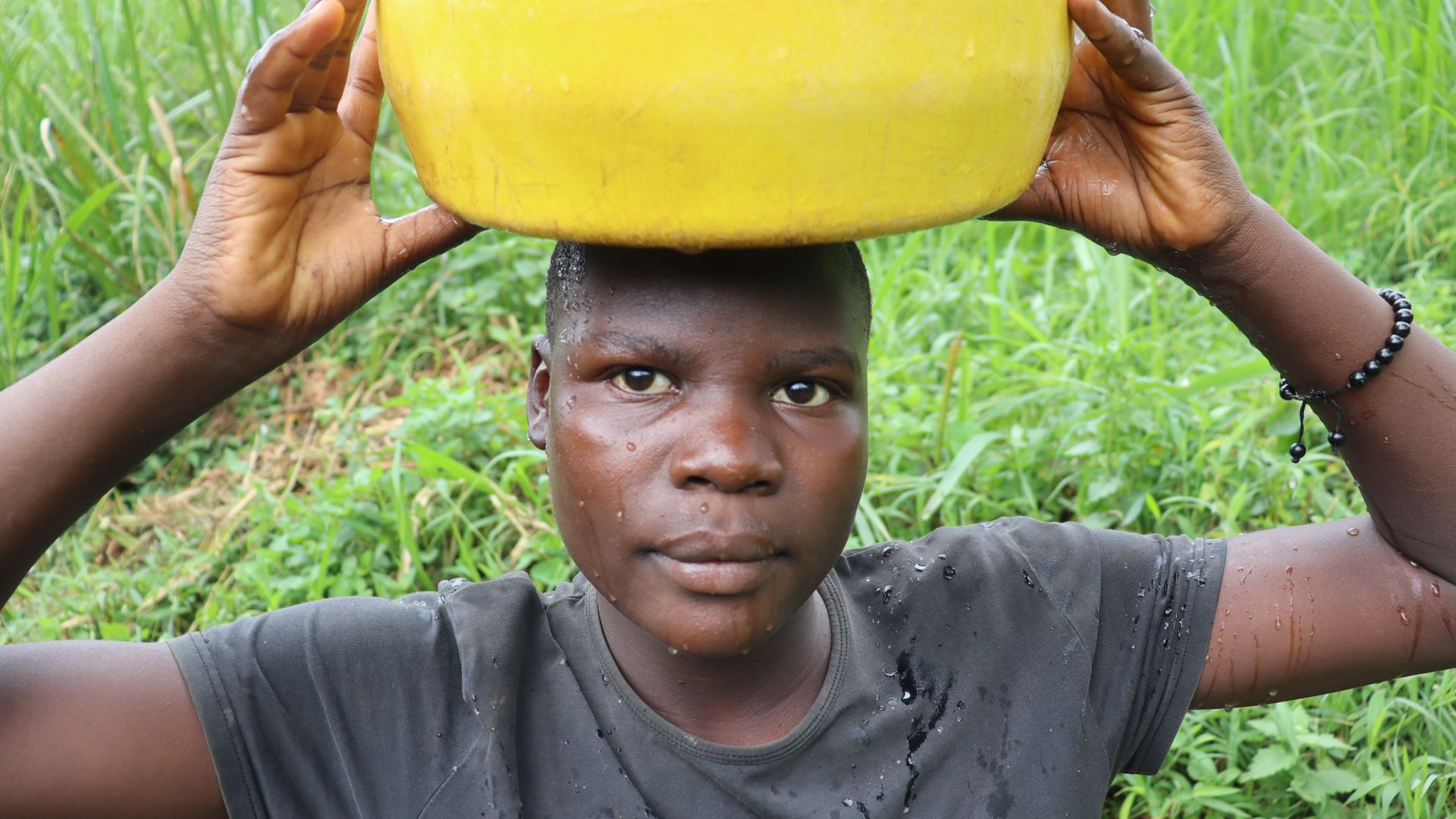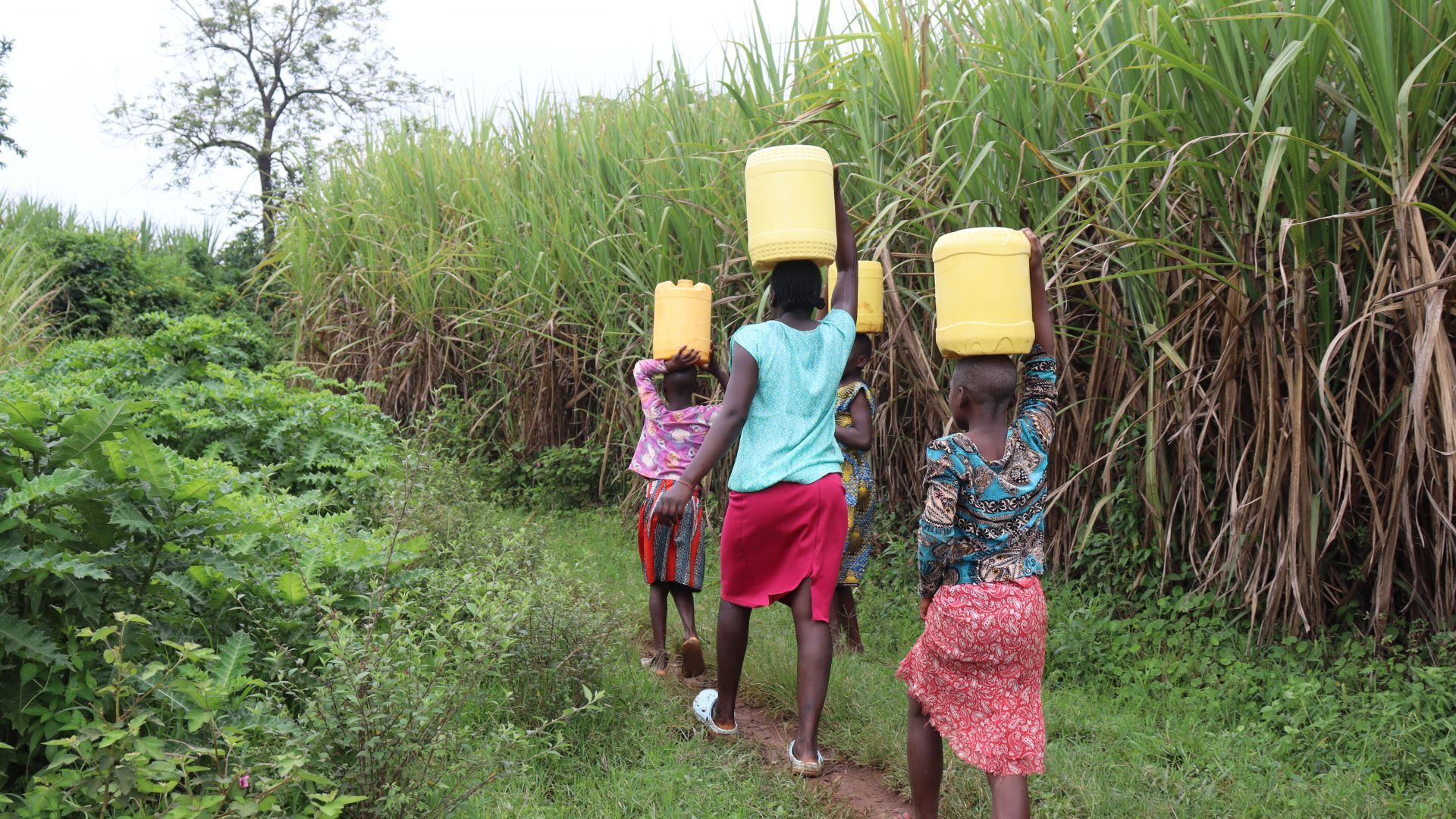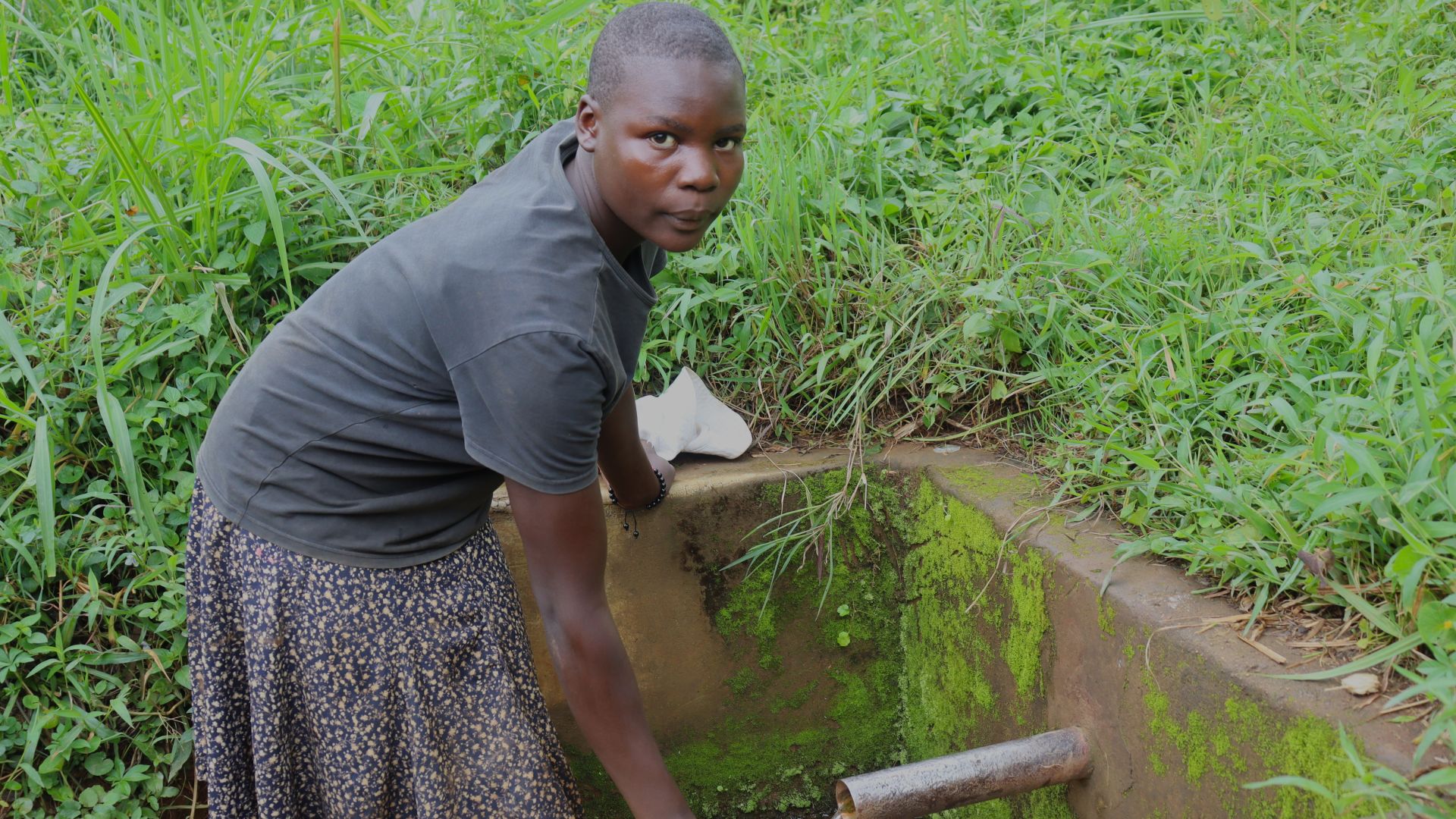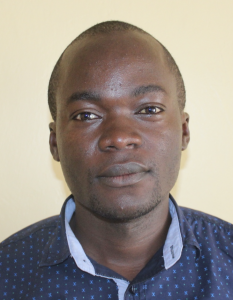In Western Kenya, 186 people call Muyundi Community home. However, it's not as comfortable as the word "home" implies, as their main water source, the Muyundi Spring, has created a community-wide crisis. The spring is broken down, causing contamination, long lines, and forcing people to search out other water sources, often relying on a local river, whose poor water quality creates even bigger problems.

A community member collects river water.
"[The] majority complain about stomachache, which normally affects them during [the] rainy season. This is due to [the] collection of waste materials at the water source, which causes water contamination and is unsafe for human consumption. The land terrain is very slippery, hence accessing the water source becomes difficult, especially for older people and expectant mothers. This is due to rain that causes [the] soil to be loose," shared Field Officer Victor Musemi.

The spring is treacherous to access.
17-year-old Felistu is used to the hardship, but it doesn't make her day-to-day life any easier. "Life has changed. I can no longer collect water comfortably. I have to support the container either with stones or me holding [it] for it to collect water safely," she shared.

Felistu cleans her jerrycan after collecting spring water.
The toll extends beyond the physical. "When someone sends me to fetch water, I really get annoyed with him or her because of what I really experience at the waterpoint. This has created a fearful tiredness in me that I feel uncomfortable when going to fetch water," Felistu continued.

Collecting water is challenging for everyone, but for students like Felistu, it comes with even greater sacrifice.
"Fetching water really affects me mostly. Most of [the] time I have to spend much of my time collecting water, hence not finishing my assignment, and even doing personal studies. This has contributed to low performance in school," she asserted.

Carrying water home.
The quality of water she collects has dire effects on her overall education. For as often as illness occurs, it creates even more time spent away from the classroom.

Another collection point from the river.
Felistu has big plans for her future, but her goals are unreachable without the ability to focus on school and consistently have access to clean, sufficient water.

Felistu collects water from the spring.
But we have a plan. Protecting the spring will give Felistu time to pursue her education and give her the foundation she needs to build a life for herself.
"As I [am a] child from this soil, [I] am really interested in pursuing [a] nursing course to help our community in solving health-related issues," Felistu announced.
Steps Toward a Solution
Our technical experts worked with the local community to identify the most effective solution to their water crisis. They decided to safeguard the existing flowing spring.
Spring Protection
Springs are natural water sources that originate from deep underground. As water travels through various layers of the earth, it undergoes a natural filtration process, making it cleaner and safer to drink. To protect these spring sources from contamination, we construct a waterproof cement structure around layers of clay, stone, and soil. This design channels the spring water through a discharge pipe, facilitating easier, faster, and cleaner water collection.
Chlorine Dispenser
As an extra measure towards water quality safety, uniquely engineered chlorine dispensers are installed at all of our spring protection projects so community members can treat their water with pre-measured doses of chlorine. The chlorine treats any possible contamination and stays active for two to three days, ensuring water stays safe to use even when stored at home. Chlorine delivery and maintenance of the dispensers are part of our ongoing community support.
Community Education & Ownership
Hygiene and sanitation training are integral to our water projects. Training is tailored to each community's specific needs and includes key topics such as proper water handling, improved hygiene practices, disease transmission prevention, and care of the new water point. Safe water and improved hygiene habits foster a healthier future for everyone in the community. Encouraged and supported by the guidance of our team, a water user committee representative of the community's diverse members assumes responsibility for maintaining the water point, often gathering fees to ensure its upkeep.

 Protected Spring
Protected Spring
 Rehabilitation Project
Rehabilitation Project


















